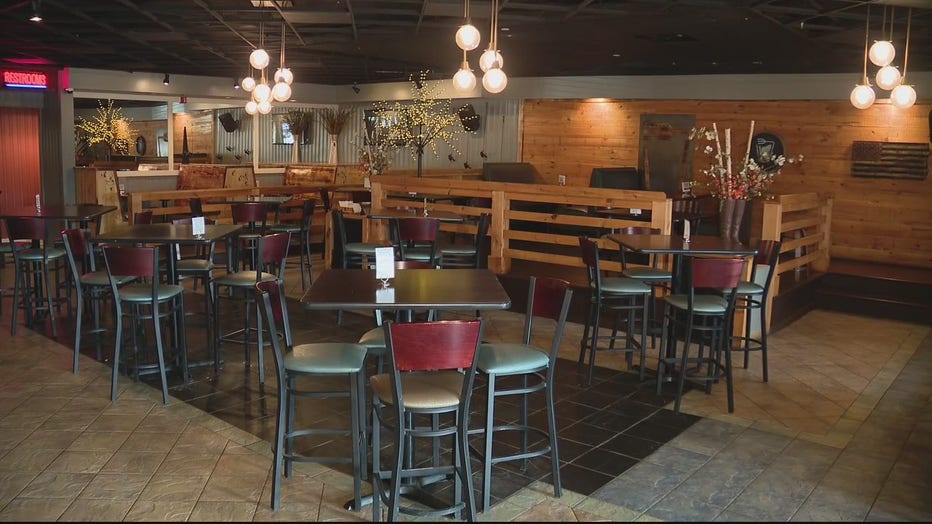Michigan restaurant association sues health department over COVID-19 orders
LANSING, Mich. - A Michigan restaurant advocacy group and two other plaintiffs have filed a lawsuit against the state health department seeking to overturn restrictions that will impact eateries and bars in the coming weeks.
The Michigan Restaurant & Lodging Association filed the suit in the federal court on Tuesday, a day before statewide restrictions that suspend indoor service in restaurants goes into effect.
It's the first in what is expected to be a heavily litigated order from the state government as Michigan works to combat a widening spread of COVID-19.
"We have taken this action only after careful deliberation and as the last available option to prevent the outright devastation of restaurant operators and their hundreds of thousands of employees across the state," read a statement from MRLA President and CEO Justin Winslow

Winslow was the first of several people to criticize the three-week restrictions announced on Sunday.
In a press release sent Tuesday, the group said it had already taken several steps to increase restrictions in the food and dining sector, offering to reduce capacity in restaurants to 25% and implementing a curfew until 10 p.m.
"While our proposal would undeniably challenge an already beleaguered industry, it was presented to Director Gordon and the Executive Office of the Governor in earnest to stave off the far worse impact of outright closure," Winslow said.
In the lawsuit, the plaintiffs argue the closures of food and drink establishments "does not accomplish that goal" of protecting public health.
"The ostensible purpose of the November 15 Order is to prevent person-to-person contact and spread of COVID-19. But the threat or likelihood of such contact and spread does not depend on whether a business activity is deemed by the government to be essential. That threat depends on the health and safety measures being taken by business owners to mitigate the threat."
RELATED: Whitmer administration issues new restrictions to slow spread of COVID-19
Additionally, the association cited data tracked by the MDHHS that said 4.3% of all outbreaks in Michigan could be attributed to restaurants.
The state did not immediately respond to a request for comment.
On Sunday's announcement, the state delivered new plans to slow COVID-19 in Michigan, which targeted several sectors in the industry. In addition to limiting operations in restaurants, it also shut down movie theaters, lowered the limit on public gatherings, and mandated high school revert to remote-schooling only.
The restrictions would go into effect Wednesday, Nov. 18, and last until Dec. 9.
Health experts and hospital CEOs have both said that small and medium-sized gatherings were among the primary ways people were getting exposed to COVID-19. The state is also tracking 63 new outbreaks at schools.
RELATED: With no unemployment help during this shutdown, servers and bar staff face unknown
Neither Gov. Gretchen Whitmer nor health directer Gordon referenced restaurants specifically when citing reasons the state needed to put more lockdowns in place, it did generally cite gatherings of people as one of the reasons the virus was spreading.
An injunction achieved by the lawsuit would only refer to "on-premises, indoor food, and beverage consumption."
The MRLA was joined by two other plaintiffs: Suburban Inns, a northern Michigan hotel operator and Heirloom, a Detroit restaurant and hospitality company.
The food and beverage industry was among the hardest hit during the first stage of the pandemic, with indoor service remaining closed for several weeks. The move led to layoffs at a majority of establishments.
A report from the National Restaurant Association said that one in six restaurants had closed permanently or long-term six months after the first shutdown.
On Sunday, Whitmer said there was little she could do to financially help the businesses that would have to alter their policies further. Placing blame on the federal government's inaction in passing more relief for small businesses, she urged Congress and the executive branch to act.
Read the lawsuit below:

